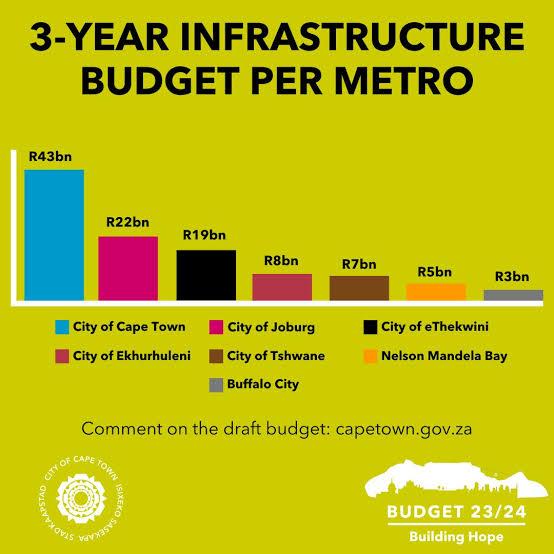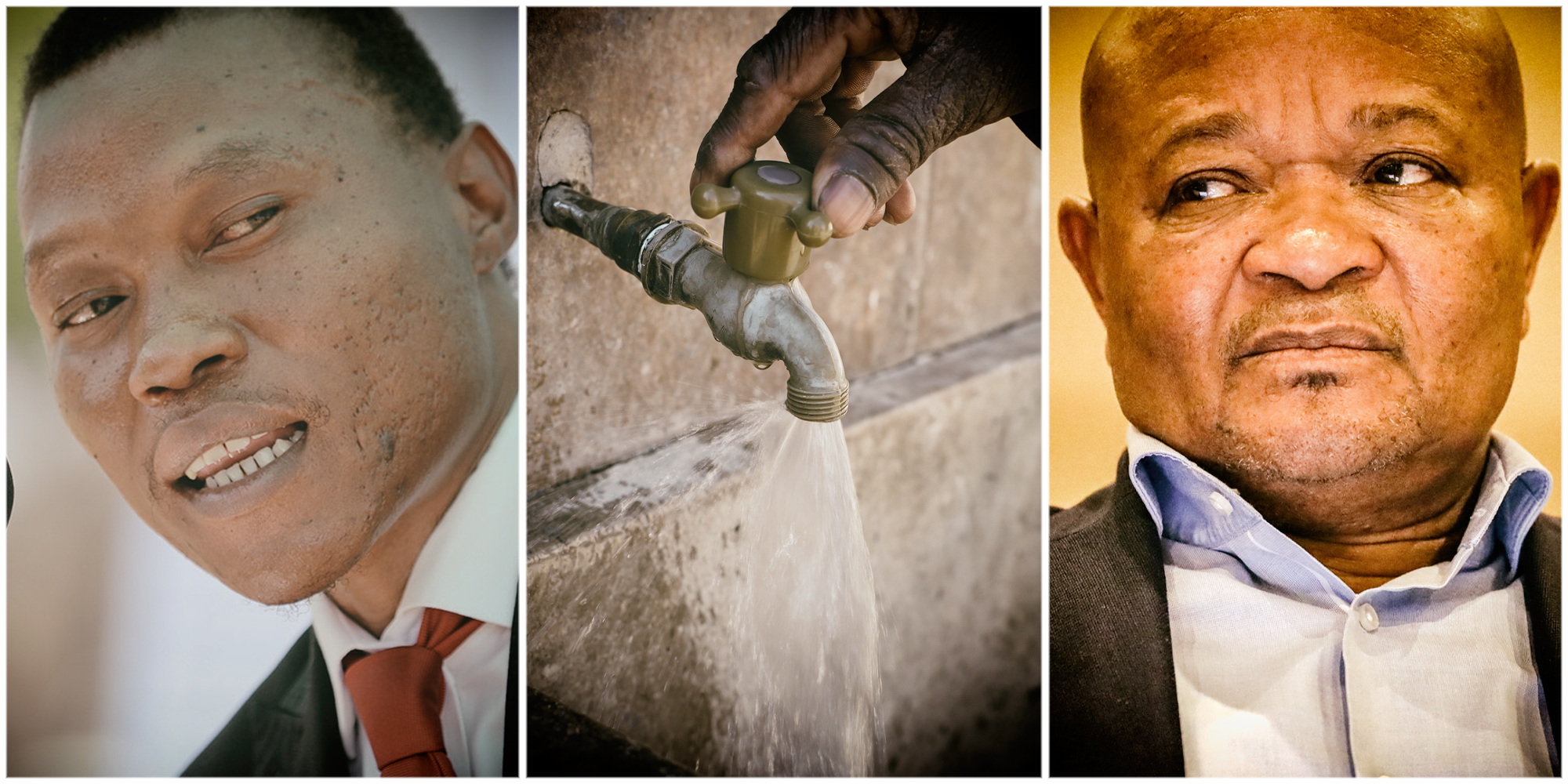Water and Sanitation Minister Senzo Mchunu slammed absentee Joburg Mayor Kabelo Gwamanda, who, like his predecessor Thapelo Amad, has missed several water crisis meetings.
At a meeting on Friday, 22 September, to manage severe water cuts across three Gauteng cities, Mchunu questioned why Joburg’s mayor was absent. There were water cuts in two-thirds of the city and by 25 September it was still struggling.
Two sources said Gwamanda had missed several meetings on the water crisis. He has left the management of the crisis to the city entity Johannesburg Water and individual councillors. The mayor has only issued statements on renaming William Nicol Drive to Winnie Mandela Drive. His office has yet to respond to two requests for comment.
The City said: “The MMC represented the City at the meeting. We cannot comment on the minister’s alleged frustration.”
Rand Water, the bulk supplier, blamed the water cuts on a thunderstorm which caused power surges at the Zuikerbosch Water Treatment Plant, which covers two-thirds of the city’s supply.
On Sunday, another power outage at the plant and at the Palmiet Pumping Station set back Mchunu’s pledge to restore water for the long weekend. Rand Water said excessive use was also straining the system.
Johannesburg Water spokesperson Nombuso Shabalala said: “Not all customers within these supply zones are affected as customers in low-lying areas will get water and customers in high-lying areas may experience poor pressure to no water.”
Water cuts extended
Johannesburg’s water supply has been stuttering for months. Areas in the southwest of the city are more often without water than with it. Rahima Moosa Hospital in Coronationville now exclusively uses borehole water and tankers to keep it running.
Read more in Daily Maverick: Day Zero comes to parts of Joburg as water cuts roll through city and taps run dry
The past week has seen the cuts extended to the city’s north, east and west, with a councillor predicting total system collapse. Rand Water is believed to be “water shedding” or supplying its 17 million consumers on a rotational basis. However, Rand Water has denied this and, in turn, blamed municipalities which lose up to 60% of water supplied, CEO Sipho Mosai said in a TV interview last week.
Parts of Tshwane and Ekurhuleni have also been without water for almost 10 days and water protests are growing.
DA councillor Ralf Bittkau wrote, “Our two main supply dams, Sterkfontein and Katse, are currently at 102% and 97%, which gives us plenty of water to draw from. While Katse is above 55%, we are okay, but going into an El Niño [low rainfall weather system], which may last three to seven years, we don’t know what will happen. We are dealing with a state entity [Rand Water] that, like Eskom, cannot cope with demand.”
Residents have started WhatsApp groups where disaster managers will pin borehole locations in case of a complete system collapse. Both Rand Water and Johannesburg Water deny the system is near collapse. “Rand Water is able and can supply water to its municipal customers,” it said at the weekend.
Johannesburg Water’s latest report shows that it loses 44.8% of supplied water to leaks, illegal connections and bursts.
Councillor Bridget Steer said although the dams may be full, the city’s water could only be distributed if Rand Water’s treatment plants and pumping stations worked optimally. While Johannesburg has invested in reservoirs to deal with multiyear supply problems in areas including Brixton, Crosby, Coronationville, Westbury, Claremont and Melville, the 10,957km pipe infrastructure needed urgent upgrading.
Johannesburg has a R20-billion infrastructure backlog but its 2023/24 capex budget is lower than most other cities as its spending on staff and contractors balloons. So far this year, the city has reported 4,190 pipe bursts a month, showing the age of the system.
Each pipe burst results in area outages, an additional strain on residents for whom multiday water cuts are now standard. Johannesburg’s emergency services have attended to more than 200 fires in the past season, most in the inner city. The water cuts make fighting the fires harder. At the weekend, a fire raged in the west (Quellerina and surrounds), and because of the water cuts, it ran wild because the hydrants were dry, according to residents.

Schools forced to close
During the past week, numerous schools which don’t have alternative water supplies have had to close.
Raylene Nadassen of St Theresa’s College in Coronationville said, “The water [cuts] have significantly impacted learners over the past few weeks. They are not planned and are ongoing without explanation given. There is no fresh water to drink, wash hands, and sanitation is impacted significantly; going to the toilet is a cumbersome exercise. We go for weeks with a trickle of water.
“The school has had to invest in JoJo tanks so learners can continue to be educated. But without rain, how will we fill the tanks? Tankers won’t fill them because the school is not on their allocation. I think it’s inhuman not to have running water at a school. By withholding a basic necessity, it has a massive impact on education.
“Weeks without water is inconsiderate as it breeds illness and sickness. Our learners deserve to be comfortable at school.”
What will happen next?
Daily Maverick has spoken to councillors, officials, experts and political leaders. Some solutions are being planned, such as additional reservoirs to store more water. Water restrictions are at Level 1 and could increase if consumption does not ease or the rains don’t come soon (although the supply dams are at reasonable levels).
Level 1 restrictions are now in place until 31 March 2024, providing that residents avoid hosepipe use, swimming pool refilling and water feature use between 6am and 6pm.
By 25 September, most affected reservoirs were slowly filling, but many were still at critical levels. Councillors said that water was returning. DM
This is the first in our community-led local investigations. The article was co-written with Michael Thompson, who lives in Coronationville and keeps Daily Maverick abreast of water and other community issues. If you would like to undertake a Johannesburg investigation or report with us, please write to ferial@dailymaverick.co.za




